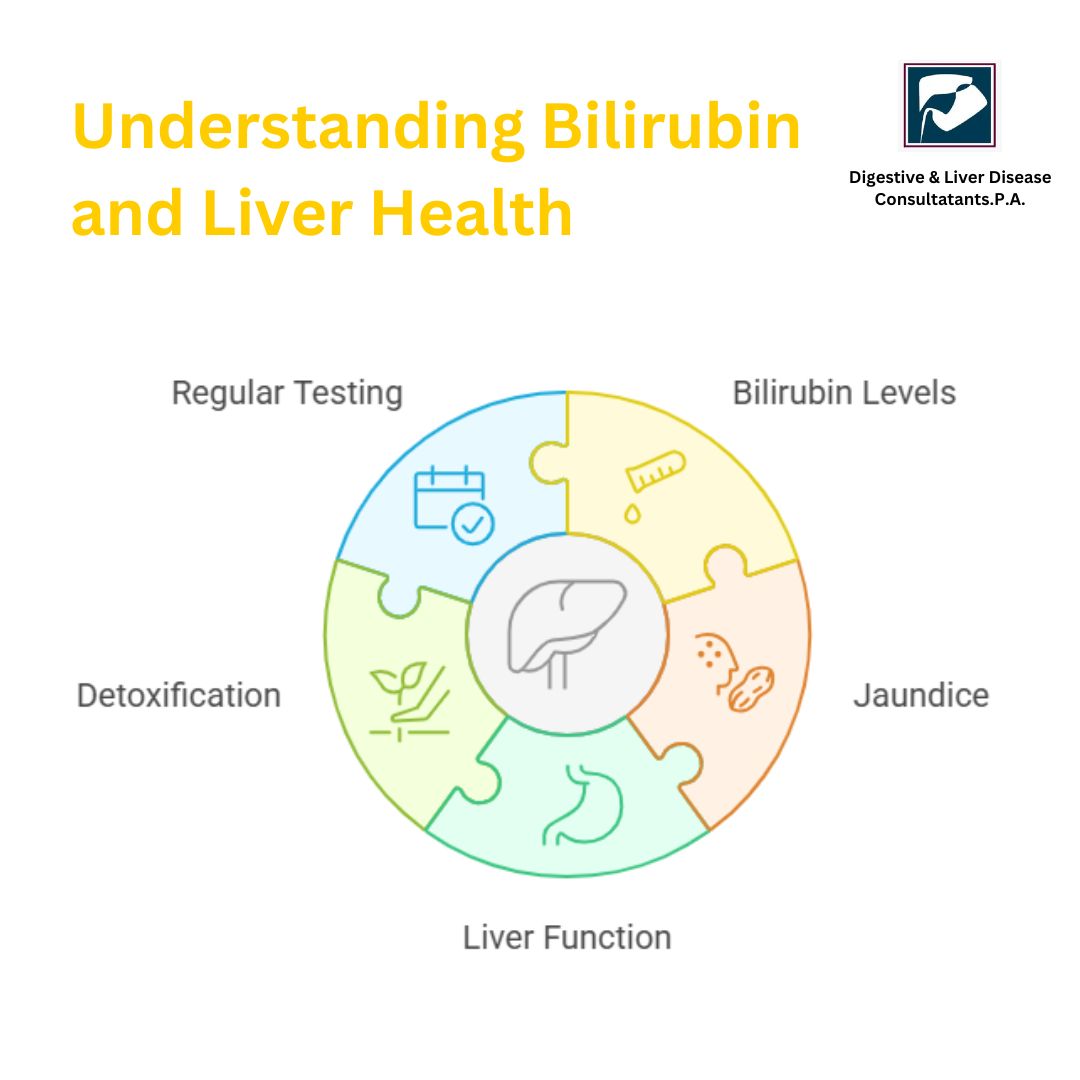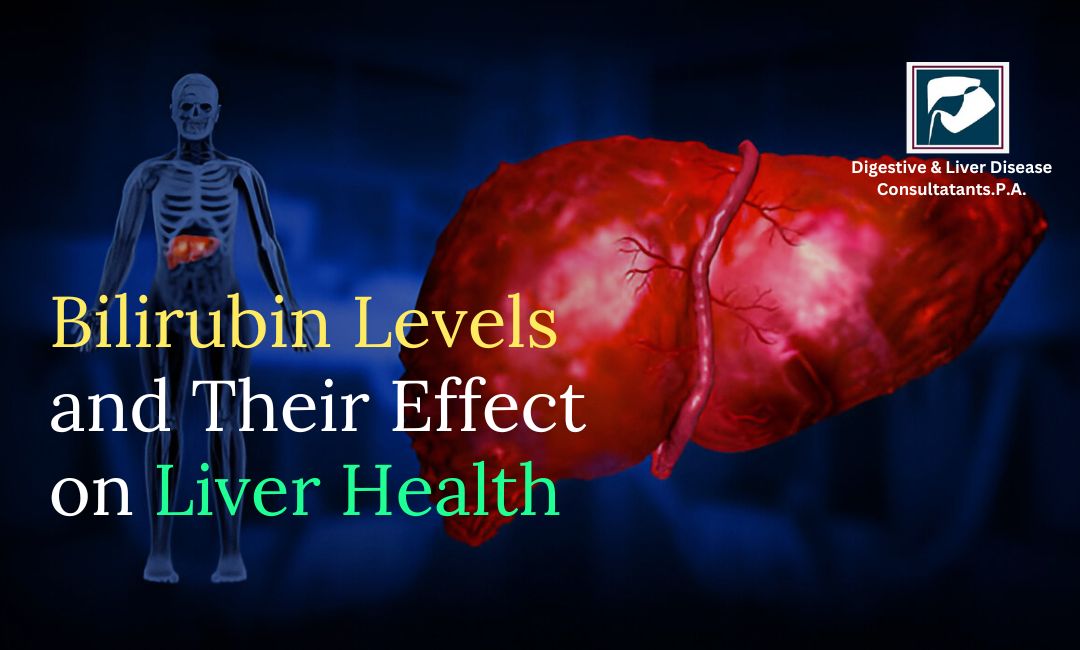Bilirubin might not be something you think about often, but it plays a big role in your health, especially your liver health. If you’ve ever had blood work done and seen the word “bilirubin” on your lab results, you might wonder what it means and why it matters. This blog will help you understand what bilirubin is, how it affects your liver, what abnormal levels can indicate, and when to seek help.
What is Bilirubin?
Bilirubin is a yellow-orange substance that forms when your body breaks down old red blood cells. Normally, your liver processes this waste product and helps get it out of your body through bile. Bile is a digestive fluid that’s stored in the gallbladder and released into the small intestine to help digest fats.
When everything is working as it should, your liver filters out bilirubin, and your body gets rid of it through stool and urine. That’s what gives stool its brown color and urine its yellow color.
But when bilirubin builds up in the body or doesn’t get processed correctly, it can be a sign that something is wrong, especially with your liver.

Why Bilirubin Levels Matter
A healthy liver keeps bilirubin levels in check. When your liver is damaged or not working properly, bilirubin can start to build up in your blood. This condition is called hyperbilirubinemia. Too much bilirubin in your system can cause jaundice—a yellowing of the skin and eyes.
Your bilirubin levels can tell your doctor a lot about how your liver is doing. It can help diagnose liver diseases, bile duct blockages, or even issues with red blood cell breakdown.
Types of Bilirubin
There are two main types of bilirubin:
Unconjugated (Indirect) Bilirubin: This is the type that forms when red blood cells break down. It travels to the liver, where it gets processed.
Conjugated (Direct) Bilirubin: This type has already been processed by the liver and is ready to be eliminated from the body through bile.
Doctors often test for both types to get a full picture of what’s happening in your body. The total bilirubin level is a combination of both indirect and direct bilirubin.
What Causes High Bilirubin Levels?
High bilirubin levels can result from many different conditions. Some of the most common include:
Liver diseases: Hepatitis, cirrhosis, or liver damage from alcohol or medication.
Bile duct problems: Gallstones or bile duct blockages can prevent bilirubin from leaving the liver.
Hemolytic anemia: A condition where red blood cells break down faster than normal.
Genetic disorders, Such as Gilbert’s syndrome, which affects the way bilirubin is processed.
Newborn jaundice: Common in babies, especially in the first few days after birth, because their livers are still developing.
Symptoms of High Bilirubin
When bilirubin builds up in the body, it can lead to noticeable symptoms, including:
- Yellowing of the skin and eyes (jaundice)
- Dark-colored urine
- Pale-colored stool
- Fatigue or weakness
- Itchy skin
- Nausea or abdominal discomfort
If you notice any of these symptoms, it’s important to talk to your doctor right away. They may recommend a bilirubin blood test to understand what’s going on.
What Causes Low Bilirubin Levels?
While less common, low bilirubin levels can also occur. In most cases, low bilirubin isn’t a cause for concern, but it might appear in people with certain types of anemia or after specific medical treatments. Typically, doctors focus more on high bilirubin levels, as they are more likely to indicate a problem with liver or blood cell function.
How Are Bilirubin Levels Tested?
A simple blood test can measure your bilirubin levels. This test is often part of a liver function panel, which checks other important markers like ALT, AST, and ALP. If your bilirubin levels are higher than normal, your doctor may order additional tests, such as imaging studies (like ultrasound or MRI), a liver biopsy, or more blood work to find out what’s causing the problem.
How to Keep Your Liver and Bilirubin Levels Healthy
Here are some simple steps to support your liver and maintain healthy bilirubin levels:
Eat a healthy diet: Include fruits, vegetables, whole grains, lean proteins, and healthy fats. Avoid processed foods and too much sugar.
Limit alcohol: Too much alcohol can damage liver cells and lead to liver disease.
Stay hydrated: Water helps your liver and kidneys flush out toxins.
Exercise regularly: Physical activity helps maintain a healthy weight and reduces fat buildup in the liver.
Avoid unnecessary medications: Some medications can harm the liver if taken in excess.
Protect against hepatitis: Practice safe hygiene, get vaccinated, and avoid sharing personal items.
See your doctor regularly: Routine check-ups can catch liver issues early, even before symptoms start.
Digestive & Liver Disease Consultants, P.A.—Your Partner in Liver Health
At Digestive & Liver Disease Consultants, P.A., we specialize in diagnosing and treating a wide range of liver and digestive conditions. Our experienced team of board-certified gastroenterologists understands how important liver function is to your overall health. We use advanced diagnostic tools to assess bilirubin levels and liver health and create customized treatment plans that fit your needs.
Whether you’re experiencing symptoms like jaundice, digestive discomfort, or abnormal lab results, we are here to help. Our goal is to give you the best care possible and guide you toward a healthier, more comfortable life.
Conclusion
Bilirubin may seem like just another number on a lab report, but it provides important insights into your liver health. High or abnormal bilirubin levels can be a warning sign of liver or bile duct problems that shouldn’t be ignored. By understanding what bilirubin does and how it affects your body, you can take better care of your liver and overall health.
If you're experiencing symptoms like yellowing skin, dark urine, or ongoing fatigue, don’t wait. Contact the experts at Digestive & Liver Disease Consultants, P.A. today. Our caring team is ready to help you understand your bilirubin levels and protect your liver health with compassionate, expert care.






